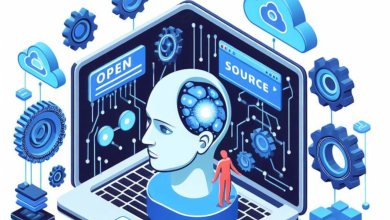
by Ilya Gutlin, Senior Vice President APAC of Alcatel-Lucent Enterprise

Asia’s travel and hospitality sector is rebounding strongly this year, following the easing of restrictions across the region. In fact, the latest World Travel & Tourism Council (WTTC) report indicates that the travel industry in Asia-Pacific might be the only one to recover fully by 2023. We already saw international arrivals in top Asia-Pacific markets rebound substantially in 2022, totalling 10.4 million in December 2022 — more than eight times the monthly average in 2021, and we expect this trend to continue.
A major reason for this? China. Earlier this year, the world’s most important source of travellers, who had for so long held an unwavering stance on their COVID-19 restrictions, finally relaxed measures that enabled people to seamlessly travel to and from the country again.
Hospitality in the new normal
As we enter the new normal, we will have no existing similar models to accurately predict what’s to come. But what’s clear is the world is adapting to deal with viruses, geopolitical tensions, and other hazards we encounter every day.
We are all participants in this new normal — in the way we work, consume, interact, and travel. And change is not new to us. Although it is always surprising, the travel industry has always tended to bounce back from previous shocks a lot faster than originally predicted. And as the past incidents have changed the way we live, certain trends that were born out of or accelerated by the pandemic will continue to linger, and the hospitality industry will embrace the new normal.
For instance, the concept of ‘bleisure’ rose to the forefront as a consequence of the pandemic. The term ‘bleisure’ describes travel that combines both business and leisure. With the spike in working from home, the barrier between work and personal life is more blurred than ever. Though the concept is not new, bleisure is now becoming a current practice, and even a perk, where companies and employees see mutual benefits, similar to working from home.
Whether bleisure means working during your vacation or taking your family with you on a business trip with some time off to relax, it is challenging hoteliers with new requirements including: the type of hotel travellers want to stay at; the duration of the stay; preferred destinations; and guest services, among others. Travellers are already demanding more extensive use of technology such as self-check-in kiosks, touchless systems, smart elevators and applications to control in-room settings and access hotel services. A 2022 survey conducted found 73% of guests agree that they’re more likely to stay at a hotel that offers self-service technology, and 77% of travellers are interested in using automated messaging or chatbots for customer service requests at hotels.
Online Travel Agencies (OTAs) have also become a significant player over the last decade. With a larger choice of places to stay, convenient price comparisons, and a consistent and superior digital experience, it’s easy to see why guests are increasingly using such platforms. As OTAs become more prevalent during the booking experience, the massive traveller data they collect will position them to move further into the space of managing the end-to-end traveller journey.
The hospitality industry will need to adapt quickly, and flexibly to the surge in demand and shifting needs of guests, especially as guest experience continues to strengthen as a key differentiator in an increasingly competitive landscape.
Laying the groundwork for digital and innovative success
Cloud-based solutions and Software as a Service (SaaS) models will be key in enabling the hospitality industry to succeed as we settle into the new normal. A robust network is an important infrastructure that provides the foundation for innovative hotel services and enables digital transformation. It is key to delivering communication services for staff and guests, as well as in-room-automation services to ensure a memorable guest experience.
A good network infrastructure primed for the digital age should be built upon three key pillars:
-
A high-performance Autonomous Network that can automatically provision network services and automate mission-critical network operations to allow IT resources to focus on enabling new guest services. In complex hotel environments, as well as hotels with limited IT budgets, the automated network configuration eliminates manual errors and increases operational efficiencies.
-
IoT onboarding enables hotel operators to scale up digitalisation through secure IoT provisioning and management. It can integrate, onboard, and connect a massive number of IoT devices that are at the foundation of new digital business processes. It can also improve hotel operations and guest experiences with the automated provisioning of IoT devices in a secure and reliable manner.
-
Business Innovation helps hotels accelerate their digital transformation with new automated workflows, taking the effort out of labour-intensive or repetitive tasks. It improves staff efficiency and guests’ digital engagement with digital processes and services.
In the Philippines, the Okada Manila Resort successfully deployed a converged network solution to provide a secure and stable network for up to 20,000 guests at a time. With an upgraded and scalable network infrastructure that provided high-quality connectivity in key areas such as in the gaming and retail spaces, guests could access personal and business data with ease. As all guest transactions through a secure server, guests could rest assured knowing that their purchases and data were protected.
Stepping into the future
The world has changed. Adapting to address the new normal will be imperative to enable the hospitality industry to move forward through what has been a painful time of disruption. This includes investing in a digital-age networking strategy to build a strong technological foundation that can empower digital transformation and reshape the engagement for the employees and the hospitality experience for guests.




